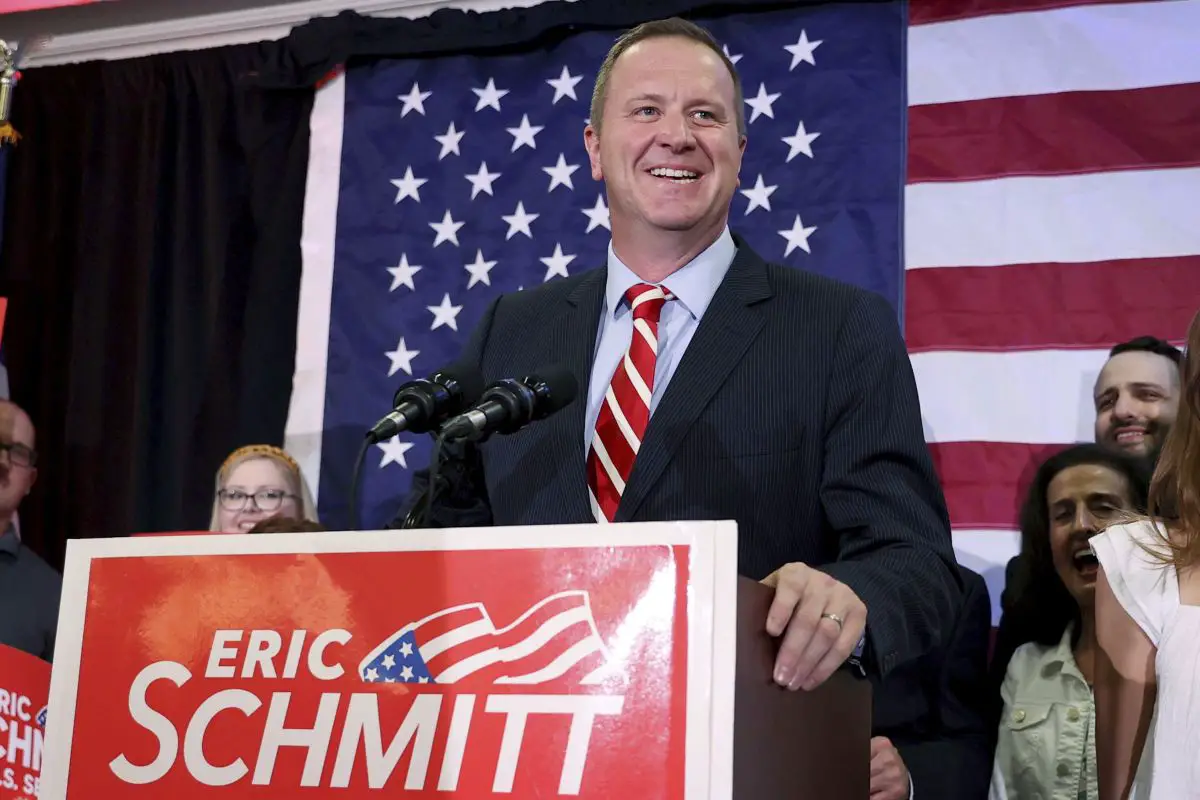A somewhat mixed bag across the country in primary voting last night with a noteworthy result in Kansas where voters rejected a change to their state constitution which would have allowed the state legislature to potentially outlaw abortion.
Here’s a quick rundown of what happened in the various primary votes around the country on Tuesday, August 2.
Arizona
The GOP primary for Governor is going down to the wire between Kari Lake and Taylor Robson with the former holding a small but meaningful lead as the rest of the votes get counted:
As of Wednesday morning, Lake had 46.2% of the vote, and Taylor Robson had 44.5% in the Republican primary. The two women are seeking to succeed term-limited Gov. Doug Ducey, a Republican.
The race turned into a bit of a proxy war between former President Trump and former Vice President Mike Pence.
The former president last year endorsed Lake, who is a strong supporter of Trump’s repeated and unproven claims that his 2020 election loss to President Biden was due to massive voter fraud.
The Lake-Robson battle won’t be determined perhaps for days.
On the Arizona Senate side, Blake Masters easily won his spot to face Democratic incumbent Senator Mark Kelly in November. The Senate race is listed as a “toss-up” and Masters seemed to have the best shot in the field to take down Kelly turning this reddish-purple state back to red.
Missouri
In the Missouri GOP Senate primary, state Attorney General Eric Schmitt came away victorious last night in a case of a come-from-behind victory against former Missouri Governor Eric Greitens.
Trump offered his endorsement in the race for “Eric” which turned into a case of both candidates claiming a Trump endorsement but only one Eric succeeding:
Eric Greitens, the scandal-tarred former Missouri governor who launched a comeback bid against the wishes of many Republicans, will lose the state’s GOP Senate primary, NBC News projects.
Eric Schmitt, currently the state’s attorney general, is projected to proceed to the general election, where he will compete with a Democratic nominee for the seat being vacated by retiring Republican Sen. Roy Blunt.
Greitens was a damaged nominee even before deciding to run for the Senate seat. Back in 2018, he resigned as Missouri governor over sexual misconduct allegations. He would’ve been damaged goods in the general election and Missouri Republicans chose wisely by selecting Schmitt to hopefully hold the Senate seat from retiring Republican Roy Blunt.
Michigan
In Michigan, the primary challenge against Rep. Peter Meijer, one of ten House Republicans that voted to impeach former President Donald Trump, will be ending with Meijer’s defeat to challenger John Gibbs:
Michigan Rep. Peter Meijer, who voted to impeach former President Donald Trump after the Capitol riot, has narrowly lost his Republican primary to Trump-backed conservative challenger John Gibbs, according to a race call by The Associated Press.
The loss for Meijer is a boost for Trump as he continues endorsing primary challenges to Republican Senate and House members who disagree with his false narrative that the 2020 election was fraudulent.
That marks the second Trump impeacher to go down in primary defeat. There are still two more races outstanding but they have yet to be called in Washington state.
Kansas
In Kansas, voters rejected a change to the state constitution that would have reversed a 2019 state supreme court ruling that enshrined abortion as a right.
The battle over abortion surely isn’t finished since neither side is fully placated by this outcome but it could send up alarm bells for November if other states vote to support abortion in similar numbers:
The vote stands as a major win for abortion rights advocates, preserving access in a red state as the procedure is banned or severely restricted in much of the region.
It upholds a 2019 Kansas Supreme Court ruling that, in response to an attempt to ban a common second-trimester abortion procedure, said Kansans had a right to bodily autonomy and therefore the right to terminate a pregnancy.
The movement against the amendment succeeded in turning voters out in historic numbers, despite its placement on a primary ballot many assumed would favor Republicans. They were able to keep margins in rural counties smaller than anticipated.
Secretary of State Scott Schwab said early in the evening that anecdotal evidence indicated the turnout could match the 2008 presidential race — 63.3%.
More than $12 million was poured into the 20-month campaign.
Kansas is red, typically, but not sometimes as red as people think. It’s one of those midwest states where Republicans tend to win but the electorate skews somewhat moderate and almost more libertarian at times than down-the-line conservative-Republican.
This will no be the first battle in Kansas over abortion as the next phase involves upcoming elections to potentially replace justices on the state supreme court potentially setting up the opportunity to overturn the 2019 ruling down the road:
Ousting judges could be a pathway to overturning the 2019 decision.
“I certainly think there’s a pathway with a different composition of judges,” said Elizabeth Kirk, director for the Center for Law and the Human Person at Catholic University. “It could be overturned if a future court thought that nothing in the 1859 state constitution included a right to abortion.”
Patrick Miller, a University of Kansas political scientist, said that effort could begin as early as November.
The majority of the Kansas Supreme Court is currently made up of justices appointed by Democratic governors. But all but one of those justices is up for retention this year.
Kansas will be somewhat of a testing ground for various abortion ballot tests moving forward. This will be the norm in other states as well since abortion is now an issue regulated at the state level.
Donate Now to Support Election Central
- Help defend independent journalism
- Directly support this website and our efforts
